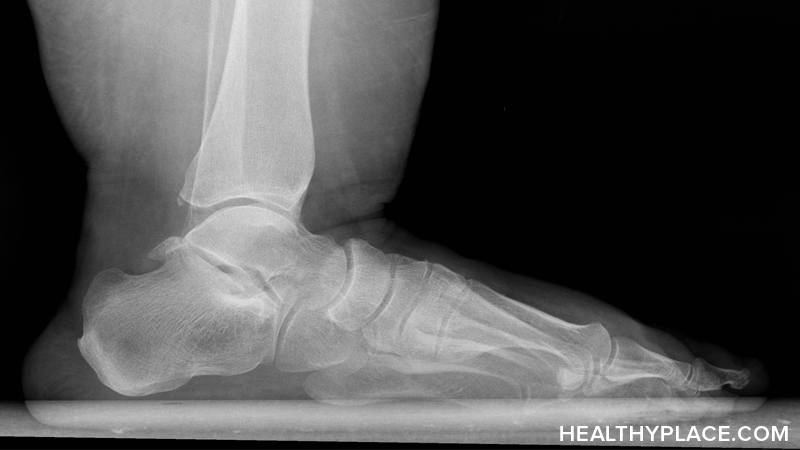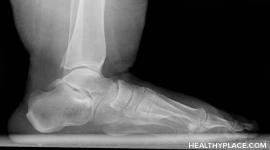Prader-Willi Syndrome

Prader-Willi syndrome (PWS) is an uncommon inherited disorder characterized by mental retardation, decreased muscle tone, short stature, emotional liability and an insatiable appetite which can lead to life-threatening obesity. The syndrome was first described in 1956 by Drs. Prader, Labhart, and Willi.
PWS is caused by the absence of segment 11-13 on the long arm of the paternally derived chromosome 15. In 70-80% of PWS cases, the region is missing due to a deletion. Certain genes in this region are normally suppressed on the maternal chromosome, so, for normal development to occur, they must be expressed on the paternal chromosome. When these paternally derived genes are absent or disrupted, the PWS phenotype results. When this same segment is missing from the maternally derived chromosome 15, a completely different disease, Angelman syndrome, arises. This pattern of inheritance when expression of a gene depends on whether it is inherited from the mother or the father is called genomic imprinting. The mechanism of imprinting is uncertain, but, it may involve DNA methylation.
Genes found in the PWS chromosomal region code for the small ribonucleoprotein N (SNRPN). SNRPN is involved in mRNA processing, an intermediate step between DNA transcripton and protein formation. A mouse model of PWS has been developed with a large deletion which includes the SNRPN region and the PWS 'imprinting centre' (IC) and shows a phenotype similar to infants with PWS. These and other molecular biology techniques may lead to a better understanding of PWS and the mechanisms of genomic imprinting.
Questions and Answers On Prader-Willi Syndrome
Q: What is Prader-Willi syndrome (PWS)?
A: PWS is a complex genetic disorder that typically causes low muscle tone, short stature, incomplete sexual development, cognitive disabilities, problem behaviors, and a chronic feeling of hunger that can lead to excessive eating and life-threatening obesity.
Q: Is PWS inherited?
A: Most cases of PWS are attributed to a spontaneous genetic error that occurs at or near the time of conception for unknown reasons. In a very small percentage of cases (2 percent or less), a genetic mutation that does not affect the parent is passed on to the child, and in these families more than one child may be affected. A PWS-like disorder can also be acquired after birth if the hypothalamus portion of the brain is damaged through injury or surgery.
Q: How common is PWS?
A: It is estimated that one in 12,000 to 15,000 people has PWS. Although considered a "rare" disorder, Prader-Willi syndrome is one of the most common conditions seen in genetics clinics and is the most common genetic cause of obesity that has been identified. PWS is found in people of both sexes and all races.
Q: How is PWS diagnosed?
A: Suspicion of the diagnosis is first assessed clinically, then confirmed by specialized genetic testing on a blood sample. Formal diagnostic criteria for the clinical recognition of PWS have been published (Holm et al, 1993), as have laboratory testing guidelines for PWS (ASHG, 1996).
Q: What is known about the genetic abnormality?
A: Basically, the occurrence of PWS is due to lack of several genes on one of an individual's two chromosome 15s - - the one normally contributed by the father. In the majority of cases, there is a deletion - the critical genes are somehow lost from the chromosome. In most of the remaining cases, the entire chromosome from the father is missing and there are instead two chromosome 15s from the mother (uniparental disomy). The critical paternal genes lacking in people with PWS have a role in the regulation of appetite. This is an area of active research in a number of laboratories around the world, since understanding this defect may be very helpful not only to those with PWS but to understanding obesity in otherwise normal people.
Q: What causes the appetite and obesity problems in PWS?
A: People with PWS have a flaw in the hypothalamus part of their brain, which normally registers feelings of hunger and satiety. While the problem is not yet fully understood, it is apparent that people with this flaw never feel full; they have a continuous urge to eat that they cannot learn to control. To compound this problem, people with PWS need less food than their peers without the syndrome because their bodies have less muscle and tend to burn fewer calories.
Q: Does the overeating associated with PWS begin at birth?
A: No. In fact, newborns with PWS often cannot get enough nourishment because low muscle tone impairs their sucking ability. Many require special feeding techniques or tube feeding for several months after birth, until muscle control improves. Sometime in the following years, usually before school age, children with PWS develop an intense interest in food and can quickly gain excess weight if calories are not restricted.
Q: Do diet medications work for the appetite problem in PWS?
A: Unfortunately, no appetite suppressant has worked consistently for people with PWS. Most require an extremely low-calorie diet all their lives and must have their environment designed so that they have very limited access to food. For example, many families have to lock the kitchen or the cabinets and refrigerator. As adults, most affected individuals can control their weight best in a group home designed specifically for people with PWS, where food access can be restricted without interfering with the rights of those who don't need such restriction.
Q: What kinds of behavior problems do people with PWS have?
A: In addition to their involuntary focus on food, people with PWS tend to have obsessive/compulsive behaviors that are not related to food, such as repetitive thoughts and verbalizations, collecting and hoarding of possessions, picking at skin irritations, and a strong need for routine and predictability. Frustration or changes in plans can easily set off a loss of emotional control in someone with PWS, ranging from tears to temper tantrums to physical aggression. While psychotropic medications can help some individuals, the essential strategies for minimizing difficult behaviors in PWS are careful structuring of the person's environment and consistent use of positive behavior management and supports.
Q: Does early diagnosis help?
A: While there is no medical prevention or cure, early diagnosis of Prader-Willi syndrome gives parents time to learn about and prepare for the challenges that lie ahead and to establish family routines that will support their child's diet and behavior needs from the start. Knowing the cause of their child's developmental delays can facilitate a family's access to important early intervention services and may help program staff identify areas of specific need or risk. Additionally, a diagnosis of PWS opens the doors to a network of information and support from professionals and other families who are dealing with the syndrome.
Q: What does the future hold for people with PWS?
A: With help, people with PWS can expect to accomplish many of the things their "normal" peers do - -complete school, achieve in their outside areas of interest, be successfully employed, even move away from their family home. They do, however, need a significant amount of support from their families and from school, work, and residential service providers to both achieve these goals and avoid obesity and the serious health consequences that accompany it. Even those with IQs in the normal range need lifelong diet supervision and protection from food availability.
Although in the past many people with PWS died in adolescence or young adulthood, prevention of obesity can enable those with the syndrome to live a normal lifespan. New medications, including psychotropic drugs and synthetic growth hormone, are already improving the quality of life for some people with PWS. Ongoing research offers the hope of new discoveries that will enable people affected by this unusual condition to live more independent lives.
Q: How can I get more information about PWS?
A: Contact the Prader-Willi Syndrome Association (USA) at 1-800-926-4797 or visit pwsausa.org
APA Reference
Tracy, N.
(2022, January 4). Prader-Willi Syndrome, HealthyPlace. Retrieved
on 2026, January 10 from https://www.healthyplace.com/eating-disorders/other-eating-disorders/prader-willi-syndrome


